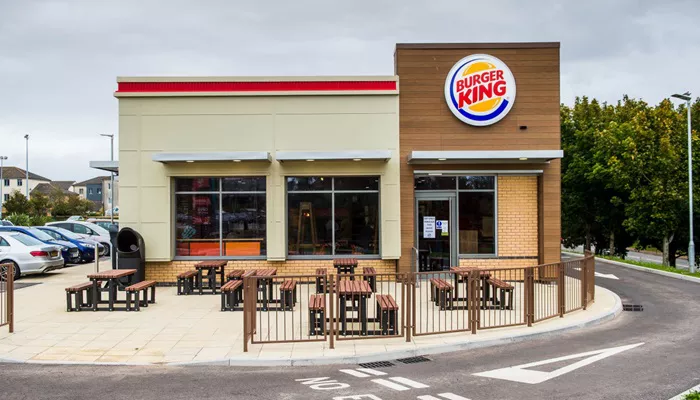Burger King, one of the largest fast-food chains globally, has made significant strides in enhancing its delivery services.
With the increasing demand for convenience in dining, the company has partnered with various delivery platforms to ensure that customers can enjoy their favorite meals from the comfort of their homes. This article delves into who is responsible for Burger King’s delivery services, focusing on their partnerships and operational strategies.
The Role of Partnerships in Delivery
Strategic Collaborations
Burger King’s approach to delivery is heavily reliant on strategic partnerships with established delivery services. These collaborations allow the brand to leverage existing logistics networks and technology, ensuring efficient service without the need to develop an in-house delivery system.
Uber Eats: Historically, Burger King has partnered with Uber Eats, a well-known food delivery platform. This collaboration has allowed customers to order from Burger King’s extensive menu through the Uber Eats app. The partnership not only enhances customer convenience but also expands Burger King’s reach to a broader audience.
Uber Direct: Recently, Burger King UK announced an exclusive partnership with Uber Direct. This initiative aims to provide rapid deliveries directly through the Burger King app. By utilizing Uber’s technology and courier network, Burger King can offer real-time tracking and 24/7 customer support for orders placed through its platform.
see also: Does Burger King Delivery Accept Cash?
How Delivery Works at Burger King
Operational Framework
The operational framework for Burger King’s delivery services involves several key components:
Technology Integration: The integration of technology is crucial for efficient order processing and tracking. The systems used by Uber Eats and Uber Direct enable seamless communication between the restaurant and the customer. This ensures that orders are prepared promptly and delivered without unnecessary delays.
Real-Time Tracking: Customers benefit from real-time tracking capabilities that allow them to monitor their orders from preparation to delivery. This feature enhances transparency and builds trust between the brand and its customers.
Customer Support: Both Uber Eats and Uber Direct provide dedicated customer support services. This ensures that any issues or inquiries regarding orders can be addressed quickly, improving overall customer satisfaction.
Marketing Strategies Supporting Delivery
Promotional Offers
To encourage more customers to utilize their delivery services, Burger King employs various marketing strategies:
Exclusive Deals: Through partnerships with delivery platforms, Burger King often provides exclusive deals for online orders. These promotions can include discounts or special offers available only through specific apps.
Loyalty Programs: The integration of loyalty programs within the delivery apps allows customers to earn points or rewards with each order. This not only incentivizes repeat purchases but also fosters brand loyalty among customers.
The Importance of Delivery in Brand Strategy
Meeting Customer Expectations
In today’s fast-paced world, convenience is paramount for consumers.
As such, the ability to deliver food quickly and efficiently has become a critical aspect of Burger King’s brand strategy:
Consumer Demand: The rise of food delivery services reflects changing consumer preferences. Many customers now prefer the option of having meals delivered rather than dining in or picking up food themselves.
Competitive Advantage: By offering robust delivery options, Burger King can maintain a competitive edge over other fast-food chains that may not have as extensive a delivery network.
Challenges Faced in Delivery Operations
Logistical Hurdles
While partnerships enhance Burger King’s delivery capabilities, they also come with challenges:
Quality Control: Ensuring food quality during transit is a significant concern. Maintaining the temperature and freshness of meals until they reach customers is crucial for customer satisfaction.
Delivery Times: High demand can sometimes lead to longer wait times for deliveries. Managing these expectations is essential for maintaining customer trust.
Conclusion
In summary, Burger King’s delivery system is primarily supported by strategic partnerships with established platforms like Uber Eats and Uber Direct. These collaborations enable the fast-food giant to meet consumer demands for convenience while maintaining high standards of service quality through technology integration and effective logistics management.
As consumer preferences continue to evolve towards more convenient dining options, it is clear that effective delivery solutions will remain a cornerstone of Burger King’s operational strategy. By focusing on enhancing these services through partnerships and technology, Burger King positions itself as a leader in the fast-food industry while ensuring that its customers enjoy a seamless dining experience from order to delivery.
Related topics:
- Does Carl’s Jr Take Food Stamps?
- How Are Wendy’s French Toast Sticks Made?
- What Is Chick Fil A Fries Cooked in?

